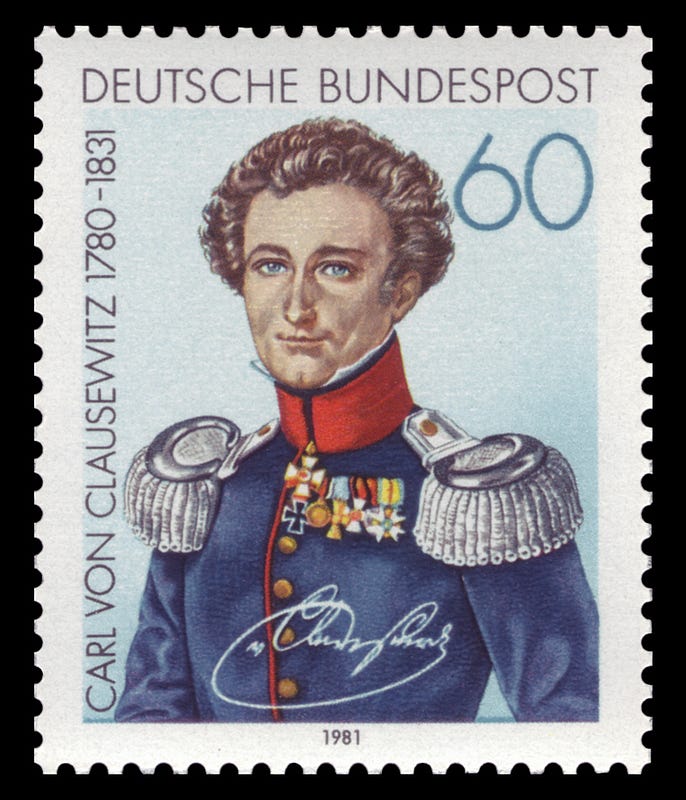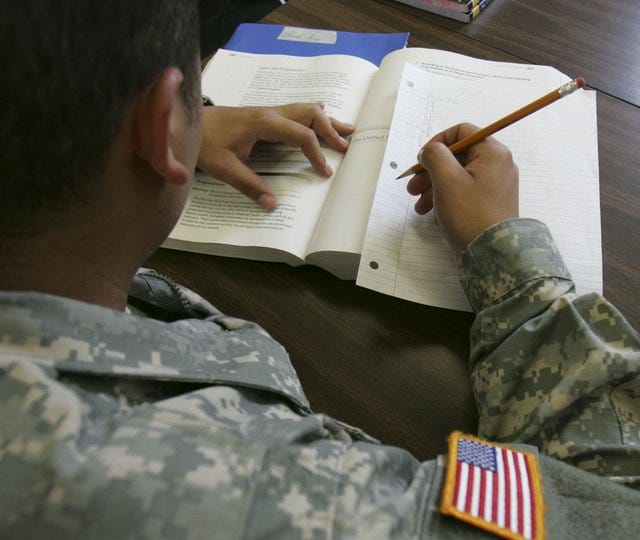The Sky isn’t Falling…yet
This post was provided by Joe Byerly, a US Army armor officer. The views expressed belong to the author alone and do not represent the US Army or the Department of Defense.
“The evidence would indicate that a serious intellectual effort during peacetime in thinking through what the past suggest about the future plays an important role in how well military organizations are able to adapt in conflict.” -Williamson Murray
Over the last couple of weeks, Matthew Cavanaugh, Andrew Rohrer, and Mikhail Grinberg have written essays addressing the Army’s slant towards anti-intellectualism. While all of them are very good essays about problems affecting the Army, I think they are focusing on the wrong issue. Anti-intellectualism exists, as it always has in militaries since the rise of standing armies; so instead of focusing on the bureaucratic nature of military culture, we should be determining how to refocus seasoned troops on education so that we may hone our judgment in garrison as we prepare to meet the challenges of future battlefields. The issue is not one of merely having an intellect, but how an intellect is both grown and employed.
 In August of 1802, Gerhard Scharnorst, a Prussian officer, posed the following question to a young lieutenant, “What will happen when the men Frederick II trained during the Seven Years War are no longer with us?” A similar question should be asked today as the Army downsizes and veterans baptized in the complexities, ambiguities, and nature of combat, leave the service. While these characteristics of conflict may be fresh to many of us, institutional memory has the tendency to dissipate quickly. Very soon, the realities of war will become a foreign concept to not only our company grade officers and NCOs, but also our cadre of instructors in our professional military education courses. If we are not careful, the bureaucratic nature of military service may overtake those very things that allow us to call ourselves a profession. Therefore, Scharnhorst’s answer to his question is still relevant today: “The crisis can only be met by educating our [soldiers].”
In August of 1802, Gerhard Scharnorst, a Prussian officer, posed the following question to a young lieutenant, “What will happen when the men Frederick II trained during the Seven Years War are no longer with us?” A similar question should be asked today as the Army downsizes and veterans baptized in the complexities, ambiguities, and nature of combat, leave the service. While these characteristics of conflict may be fresh to many of us, institutional memory has the tendency to dissipate quickly. Very soon, the realities of war will become a foreign concept to not only our company grade officers and NCOs, but also our cadre of instructors in our professional military education courses. If we are not careful, the bureaucratic nature of military service may overtake those very things that allow us to call ourselves a profession. Therefore, Scharnhorst’s answer to his question is still relevant today: “The crisis can only be met by educating our [soldiers].”
Growing a military intellect through education should not be for the sake of accumulating knowledge; it should serve the purpose of informing judgment that may be called upon to make critical decisions during a time of war. Clausewitz once wrote that “the whole military activity must therefore relate to the engagement. The end for which a soldier is recruited, clothed, armed, and trained, the whole object of his sleeping, eating, drinking, and marching is simply that he should fight at the right place at the right time.” Thus, an education that contributes to preparing for or the execution of war should be valued and encouraged at the tactical through strategic levels. Studying war and warfare helps us understand the continuities of war (those things that have not changed much in 5,000 years), thus guarding against unrealistic silver-bullet solutions to complex problems. In the 1990s, proponents of the “Revolution in Military Affairs,” “Military Transformation” and a “New American Way of War” argued that technology would lift the fog of war. Near-certainty in war, combined with precision strike capabilities, would make wars fast, cheap, efficient and decisive. Experience in Iraq and Afghanistan exposed flaws in these concepts. They neglected the interaction with enemies and adversaries who adopted traditional countermeasures like dispersion, concealment, and decentralized command and control, requiring us to fight in close combat with for periods that might outlast popular perceptions. By studying war and warfare, the complexities, ambiguities, and nature of war remain at the forefront of the minds of those who may never wear a combat patch.
 Because we’ve been an Army strained over the last decade by two wars, the priority has been quickly getting leaders back out to the force so they could contribute to the efforts in Afghanistan and Iraq. Out of necessity, professional military education and assignments that provided an opportunity for reflection were secondary priorities to the war efforts. Thus, the professional horizon for those entering service after 2001 consisted of preparing for deployments, deploying, and resetting units following deployments. It is for this reason that we’ve placed a higher value on operational experience than education because it is what was required of us, not because we are an anti-intellectual culture. We must now focus on how we will move forward, further developing the experiences of the past decade through education and reflection. As leaders, it is imperative that we do our best to refocus the force on the importance of education to the profession of arms. We must help develop an intellectual curiosity among those men and women in our formations, so that they may balance their experiences with education and intellectual curiosity.
Because we’ve been an Army strained over the last decade by two wars, the priority has been quickly getting leaders back out to the force so they could contribute to the efforts in Afghanistan and Iraq. Out of necessity, professional military education and assignments that provided an opportunity for reflection were secondary priorities to the war efforts. Thus, the professional horizon for those entering service after 2001 consisted of preparing for deployments, deploying, and resetting units following deployments. It is for this reason that we’ve placed a higher value on operational experience than education because it is what was required of us, not because we are an anti-intellectual culture. We must now focus on how we will move forward, further developing the experiences of the past decade through education and reflection. As leaders, it is imperative that we do our best to refocus the force on the importance of education to the profession of arms. We must help develop an intellectual curiosity among those men and women in our formations, so that they may balance their experiences with education and intellectual curiosity.
One such approach to furthering intellectual curiosity might be the creation of a General Officer Scholar Program to support the Operational and Self-Development Domains of leader development. Division Commanders and other flag officers in charge of our formations across the Army could use a voluntary program outside of the institution that promotes reading, study, and reflection. For example, a program might require a 4 month commitment, read 2 books as part of the General Officer’s reading list (or other curriculum), participate in online and face to face professional discussions with other leaders in the program, and submit an article for publication. These actions could be rewarded by the general officer offering recognition in the form of an award or letter of commendation, thereby appealing to both the intrinsic and extrinsic motivation of younger leaders. Not only would this allow leaders within the organization to hone their judgment through study and reflection, but they may begin to value the importance of education as a member of the military profession. This is only one example of initiatives that could be implemented that doesn’t require extensive budgets or training resources, yet has the potential to make a tremendous impact.
I do not believe the situation is as dire as Cavanaugh describes in The Decay of the Profession of Arms, the sky is not falling; however if we, as an Army, do not focus our efforts on helping our soldiers and junior leaders make the linkage between education and military effectiveness, we will find ourselves unprepared for the next conflict. A failure to hone our intellect with the study of war and warfare will lead to training that no longer reflects the realities of combat and a misguided faith in our technology. The tuition of experience in war is extremely expensive, and its benefits will be lost as time passes as those who’ve earned it move on. So, to paraphrase Scharnhorst’s sage advice, the dangers of becoming an anti-intellectual Army and allowing those bureaucratic characteristics to overtake our professionalism can only be checked by the education our soldiers.
No comments:
Post a Comment